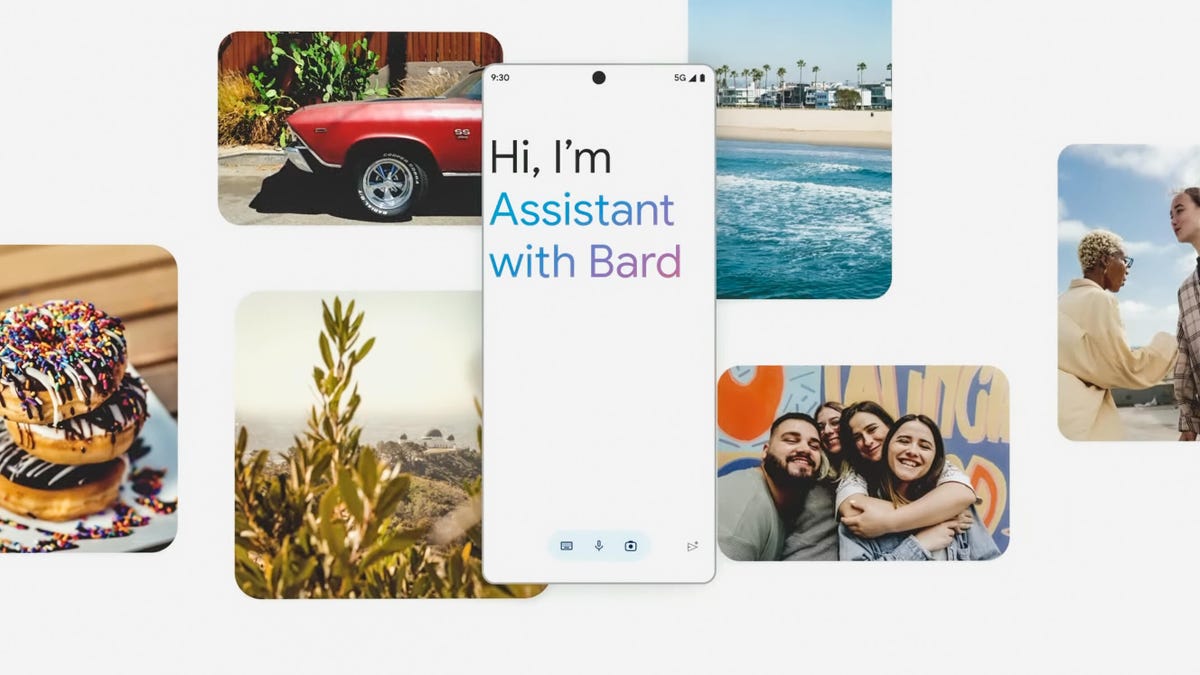Google Assistant With Bard Puts an AI Chatbot in Your iPhone or Android
Soon you'll be able to ask Assistant to summarize your emails, plan your hikes and more.

Google showed off Assistant with Bard at its Made by Google Pixel 8 reveal event this week.
Google Assistant has long been the voice-activated companion found on Android devices, responding to your "Hey, Google" commands on your phone to set an alarm or send a text. At its Made by Google event this week, at which the company unveiled the Pixel 8, Pixel 8 Pro and Pixel Watch 2, the company also showed off the next evolution of Assistant, called Assistant with Bard.
Bard is Google's generative AI chatbot, released earlier this year to compete against ChatGPT. Assistant with Bard combines the voice Assistant with AI to "help you stay on top of what's most important," according to the company's blog post.
For example, Assistant with Bard can scour through all your recent emails, summarize important information and open up Google Maps to plan a route for all your events and meetings. Before, you'd have to read every individual email, jot down the names of the cafes or parks and enter that into Maps yourself. Or if you're at a fork on a hiking trail, you can take a photo of the trail marker and ask Assistant with Bard which route is best for a dog with short legs. Assistant with Bard can search the internet for information and land upon the best answer.
Google Assistant with Bard will roll out first to testers and then to the general public over the next few months on iOS and Android. Although Google Assistant is also available on smart speakers like the Nest Mini, the company is restricting the Bard-enhanced version to phones at first. Google was careful to say that Bard is an opt-in experience on Assistant, meaning you can choose to use its capabilities or not.
Smartphones will get even smarter
Google envisions a different type of smartphone experience, one that moves away from the idea of phones as tiny computers in our pockets and toward becoming AI-powered assistants, helping us with day-to-day tasks that normally would have required us to synthesize information across multiple apps ourselves.
All the players in Big Tech are trying to make their impact with AI. Microsoft made a massive investment in OpenAI, creator of ChatGPT, earlier this year and introduced Bing AI, a ChatGPT-powered search tool. Google released Bard, but has since expanded its capabilities across the suite of Google apps. Last month, Amazon introduced a revamped version of its Alexa assistant that makes it more personal and conversational, along with the ability to pull in real-time information. And Microsoft unveiled Copilot, an AI-assistant baked into Windows 11 that can analyze emails, documents and texts and use that information to instantly create PowerPoints. Meta, owner of Facebook and Instagram, leaned into stardom last month, allowing people to interact with celebrity-impersonating chatbots based on Kendall Jenner and Snoop Dogg.
While Apple hasn't been as gung ho on AI, it did show off some photo capabilities and speech-to-text features in the iPhone 15 and iPhone 15 Pro, powered by AI. Google Assistant with Bard should put Apple's Siri on notice.
All these AI developments point to a massive shift in consumer technology. The ability for AI to understand natural language means that people won't have to interact with technology based on rigid systems envisioned by teams of programmers. Instead, we can just ask our devices. And the impact of AI won't just mean technology will be easier to use; entire markets will be impacted by AI. Generative AI alone is estimated to add $4.4 trillion to the global economy, according to a McKinsey report.
Where Assistant with Bard focuses on synthesizing information and using it across multiple apps, the Pixel 8 will have its own exclusive AI-powered features. This includes Audio Magic Eraser, a feature that can remove unwanted background noise in a video, like that of a dog barking. The Best Take feature, meanwhile, can take the best faces from a series of photos and superimpose them on one final photo, with everyone smiling and looking at the camera. Other popular AI-powered Pixel features are also getting an upgrade, like Call Screening, which is intended to do a better job of filtering out unwanted spam calls.
Assistant with Bard is exciting to see in prerecorded video demonstrations on a stage. How it translates to day-to-day usage remains to be seen. Using Assistant with Bard like the ChatGPT app on your phone isn't all too surprising. But having Assistant with Bard start to take information from one app and seamlessly open others to streamline processes could be a monumental shift in inter-app operability.
Either way, we're looking forward to seeing all the ways Google enmeshes AI in our phones, potentially making constant app switching a thing of the past.
Editors' note: CNET is using an AI engine to help create some stories. For more, see this post.

